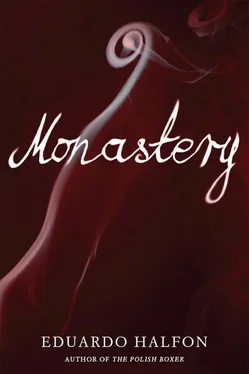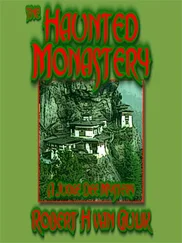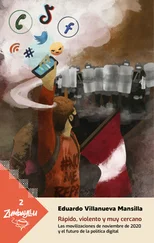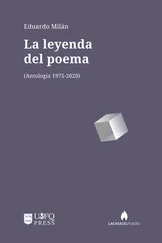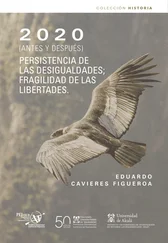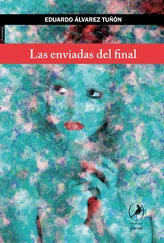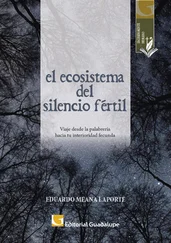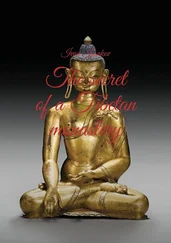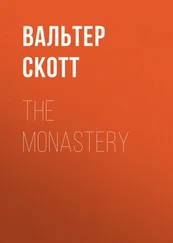I poured myself a swig of beer with plenty of foam. The beer was warm but it went down well. I poured myself another swig. I lit a cigarette and took a deep breath. I moved the bottle of water closer, just in case the macaw decided to flap down off the broomstick. I opened my backpack and was about to take out a book to read for a bit, when I felt the presence of somebody standing behind me.
You, kid, bring us two beers, yelled the immigration officer.
THEY EACH ACKNOWLEDGED ME STERNLY, with just a glance, and positioned themselves at a table in front of me. The girl came out through the bead curtain. She carried a bottle of beer in each hand. The baby was still sleeping, tied to her back. Here you are, Don Francisco, she said. The officer muttered something, perhaps thanking her. He had taken a red handkerchief out of the pocket of his green khaki uniform. He finished wiping the sweat from his neck and his face. Then he took a long sip of beer and wiped his lips and his grayish mustache with the red handkerchief. The other man reached out and grabbed the girl’s forearm hard and pulled her over toward him until she was sitting on his lap. Do you have pork carnitas? he asked her in a lecherous whisper, his long-nailed hand holding her neck, like a hook. His voice sounded too feminine to me. We do, she said, never looking up from the floor. The baby on her back stirred, whined. And do you have cracklings? Them too, she said, her voice muted, her gaze still fixed on the floor. Well then, go bring us one portion of carnitas and another of cracklings, he said, and gave her a shove toward the kitchen. She tottered a little. Right away, she said, recovering her balance. The man took off his shades and his cowboy hat and took out the black pistol and put them all down on the table. Still chewing on the toothpick, he raised his right hand as though swearing an oath before a judge. And if that fucking bird comes anywhere near me, he said, I swear to God I’ll put a couple of bullets in him.
Both men laughed loudly, almost cackling, perhaps looking at me. The girl slipped away quickly, head down, the baby swaying on her back.
I wanted to smoke. I noticed the cigarette I was holding in my fingers was shaking slightly. I couldn’t stop looking at that dirty hand in the air, and as I looked at it, I suddenly thought of the heart attack my Polish grandfather had suffered at the end of the seventies. I was very young at the time, but I can still remember my mother’s uncontrollable weeping when she got the call from the hospital. My grandfather had been lucky. It was only a minor attack. He recovered quickly. And as a result, following the three instructions he received from his doctor, he quit smoking, started drinking a couple of ounces of whiskey daily (for his nerves, he used to say), and got into the habit of walking. He walked a lot, every morning, for exercise. He would leave the house very early and walk around his neighborhood. Sometimes for up to two hours. Sometimes I’d go with him. And during one of those walks, while he was alone at the end of the Avenue of the Americas, right by the statue of Pope John Paul II, a motorcycle with two guys on it stopped beside him. They knocked him to the ground, he told us later, outraged. They gave him a blow to the head, he said, showing us where. They wanted to kidnap him, he said, perhaps now exaggerating what had been a simple robbery. They took everything he had on him, he said, now indignant, or almost everything, now proud. He managed to keep the ring with the black stone that he wore on his right pinkie finger. Sometimes he told us he had pleaded with them till they let him keep his ring. Sometimes he told us he had struggled with them to keep his ring. Sometimes he told us he had fought with them to keep his ring. Which version he told depended on the passing of the years, or on his nostalgia, or on his mood, or on the character of the person who was asking him (my grandfather understood, maybe at an intuitive level, that a story grows, changes its skin, does acrobatics on the tightrope of time; he understood that a story is really many stories). He had bought that ring in 1945, he liked to tell us, in New York, the first stop on his journey to Guatemala after being freed from Sachsenhausen concentration camp. In New York, at a Jewish jeweler’s in Harlem, he had paid forty dollars for it. And he had worn it for the rest of his life, for the next sixty years, on his right pinkie finger, as a way of mourning for his parents and siblings and friends and all the others exterminated by the Nazis in the ghettos and concentration camps. A few years back, when my grandfather died, that ring was left to one of my mother’s brothers, who wept when he inherited it and decided to keep it in the safe in his office. It was just an old black stone in an old gold setting. But one night, someone broke into that office and managed to open the safe and stole everything inside, including my grandfather’s ring with the black stone.
And there before me, on the pinkie finger of that dirty hand now holding a tortilla filled with pork and cracklings, was a ring very much like my grandfather’s ring. Or perhaps it was exactly the same as my grandfather’s ring. Perhaps it was exactly the same black stone, and exactly the same setting in gold metal, and it was exactly the same shape and size. Or at least it was all exactly like the ring in my memory, the ring as I recalled it or as I wanted to recall it, on my grandfather’s pale and slightly crooked right pinkie finger. And although I knew it was impossible, even preposterous, even absurd, I couldn’t help imagining that this ring, on this greasy hand, was indeed my grandfather’s ring with the black stone. Not a similar one. Not an exact replica. But the same one. The one my grandfather had bought in New York, in Harlem, in 1945. The one he had worn for the rest of his life on his right pinkie finger. The one he had managed to save after convincing or compelling — at the end of the Avenue of the Americas, at the end of the seventies — some muggers or maybe kidnappers. The one that, when he died, was inherited by one of my mother’s brothers. The one that had been stolen from a safe one night by a thief who never knew what he was stealing; by a thief who never knew that in that insignificant and somber black stone, one could still see the perfect reflections of my grandfather’s exterminated parents (Samuel and Masha), and the faces of my grandfather’s exterminated sisters (Ula and Rushka), and the face of my grandfather’s exterminated brother (Zalman), and the faces of so many exterminated men and women and boys and girls and babies who were killed as they slept in the arms of their mothers, as they dreamed in the gas chambers; by a thief who never knew that in that small black stone it was still possible to hear the murmur of all these voices, of so many voices, intoning in chorus the prayer for the dead.
The macaw shrieked and stretched out its wings and, still on its perch, started to flap them energetically, desperately, as if wanting to fly.
When I first met herat a Scottish bar, after who knows how many beers and almost a whole pack of unfiltered Camels, Tamara told me that she liked to have her nipples bitten, and hard.
It wasn’t actually a Scottish bar, but an ordinary bar in Antigua, Guatemala, that served only beer and was called (or at least known as) the Scottish bar. I was sitting at the counter, drinking a Moza. I prefer dark beer. It makes me think of dark taverns and sword fights. I lit a cigarette and she, on a stool to my right, asked me in English if she could have one. I guessed by her accent that she was Israeli. Bevakasha, I said, which means you’re welcome in Hebrew, and I held out a box of matches. Immediately, she became friendly. She said something in Hebrew that I didn’t understand and I made it clear that I could say only a few words and recite a prayer or two and count to ten. Fifteen, if I tried. I live in the capital, I said in Spanish to show her that I wasn’t American, and she confessed, perplexed, that she’d never thought there was such a thing as Guatemalan Jews. I’m not Jewish anymore, I said smiling, I retired. What do you mean, not Jewish anymore, that’s not possible, she shouted in that way Israelis often shout. She turned to face me. She was wearing a white Indian-style blouse made of light cotton, well-worn jeans, and yellow espadrilles. She had copper-colored hair and emerald blue eyes, if there’s such a thing as emerald blue. She told me that she’d recently finished her military service, that she was traveling through Central America with her friend, and that they’d decided to stop in Antigua for a few weeks to take some Spanish classes and earn a little money. Her, she pointed. Yael, her friend, a very pale and very serious girl with beautiful shoulders, was the one who’d served my beer. I said hello and they started speaking in Hebrew, giggling, and at some point I thought I heard them mention the number seven, though I didn’t know why. A German couple walked in and her friend went over to serve them. She held my hand tight, said that she was pleased to meet me, that her name was Tamara, and then took another one of my cigarettes without asking.
Читать дальше
